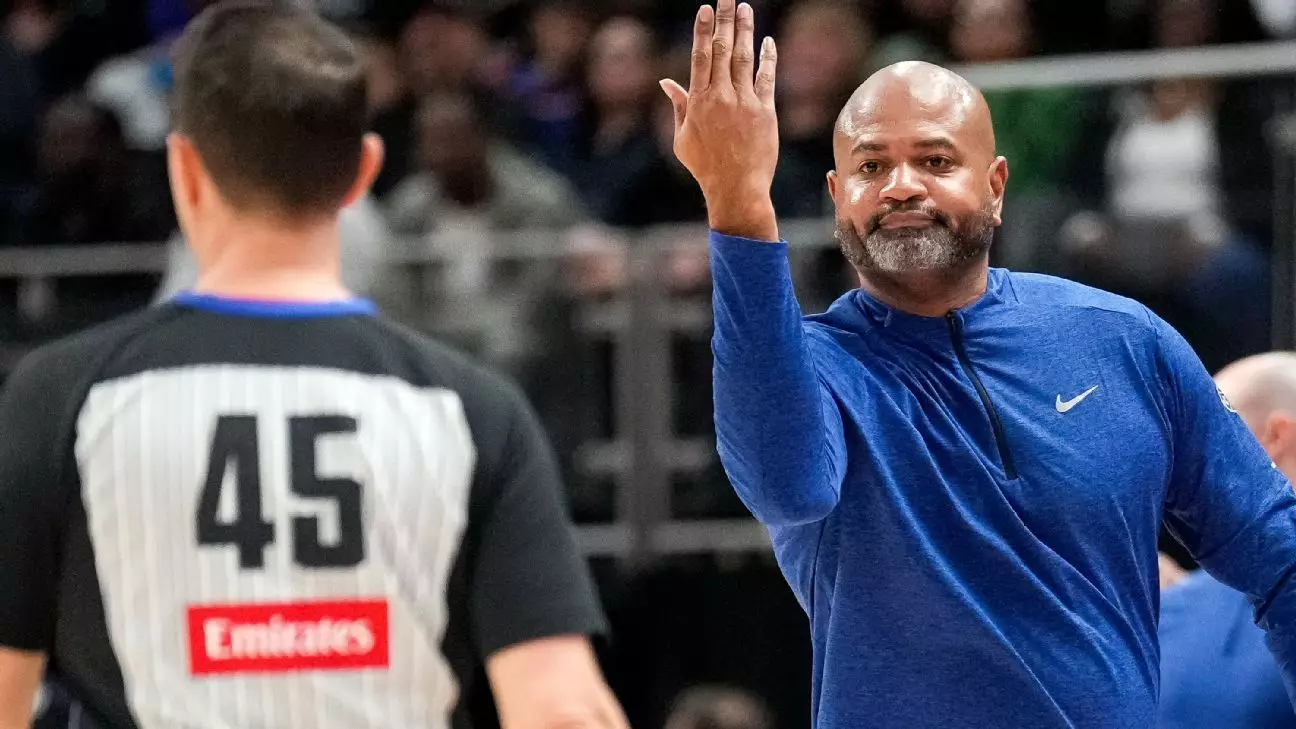In a highly charged atmosphere of professional basketball, the integrity of officiating holds tremendous weight. The recent clash between the Detroit Pistons and the Oklahoma City Thunder serves as a glaring testament to the chaos that ensues when that integrity falters. Coach J.B. Bickerstaff went on the warpath following the game, vehemently criticizing the officials after his team incurred five technical fouls within a single, tumultuous third quarter. Events spiraled out of control when star player Cade Cunningham was not only charged with two technicals in less than a minute but subsequently ejected for supposedly disrespecting the officiating crew — a chain of events that left both players and spectators bewildered.
Bickerstaff, in his post-game address, lamented, “The level of disrespect was above and beyond.” This statement encapsulates the frustration felt not only by players but also by fans who demand a semblance of fairness and professionalism. The coach’s plea is poignant; it raises questions about how officiating can profoundly affect the momentum of the game, shifting the balance of power in a matter of moments.
The Threshold of Acceptable Conduct
While athletes are undeniably responsible for their conduct, the thresholds of acceptable behavior often appear skewed when evaluated through the lens of officiating standards. The crew chief, Brian Forte, explained that Cunningham’s first technical stemmed from “disrespectfully addressing an official with profanity,” yet one wonders whether the reactions from an emotionally charged player could be understandable in a high-stakes environment. Is it realistic to expect athletes to maintain unwavering composure while facing what they perceive as injustice?
The perceived inequity extends beyond just Cunningham. Dennis Schroder also found himself in the line of fire, receiving a technical for “continuous complaining” following a team warning. Observing the unfolding drama raises intrinsic inquiries about how the circumstances leading to a warning influence subsequent calls. Shouldn’t the flow of the game also account for the atmosphere created by the officiating cadre?
Contrasting Perspectives
Interestingly, the narrative doesn’t end merely with grievances from the losing side. Oklahoma City coach Mark Daigneault seemed well-prepared for the controversial officiating, characterizing the crew as carrying a “loose whistle,” suggesting an approach that he believed favored his team. Such comments highlight the perplexity of determining a standard among different officiating crews—one that often appears subjective rather than uniformly applied.
This fervent discussion about officiating styles and their impact on game outcomes underscores a crucial element of basketball culture. While fans cherish the exuberance and skill showcased on the court, the integrity of the officiating experience can greatly enhance or tarnish that spectacle. With influential personalities like Bickerstaff openly criticizing what they perceive as unfair treatment, the league must truly consider how it trains and holds officials accountable.
A Call for Clarity and Respect
In a league that prides itself on showcasing elite talent and thrilling competitive spirit, clarity and respect must be paramount—both on the court and from those who govern it. The Pistons-Thunder matchup has become emblematic of deeper issues within the sport, with calls for comprehensive assessment and potential reform echoing louder than ever. The athletes deserve to compete without the cloud of inconsistent officiating overshadowing their efforts. As Bickerstaff eloquently put it, “the disrespect has gone far enough.” Wouldn’t it be beneficial for the integrity of the game if those in power embraced this clarion call for improved standards?

